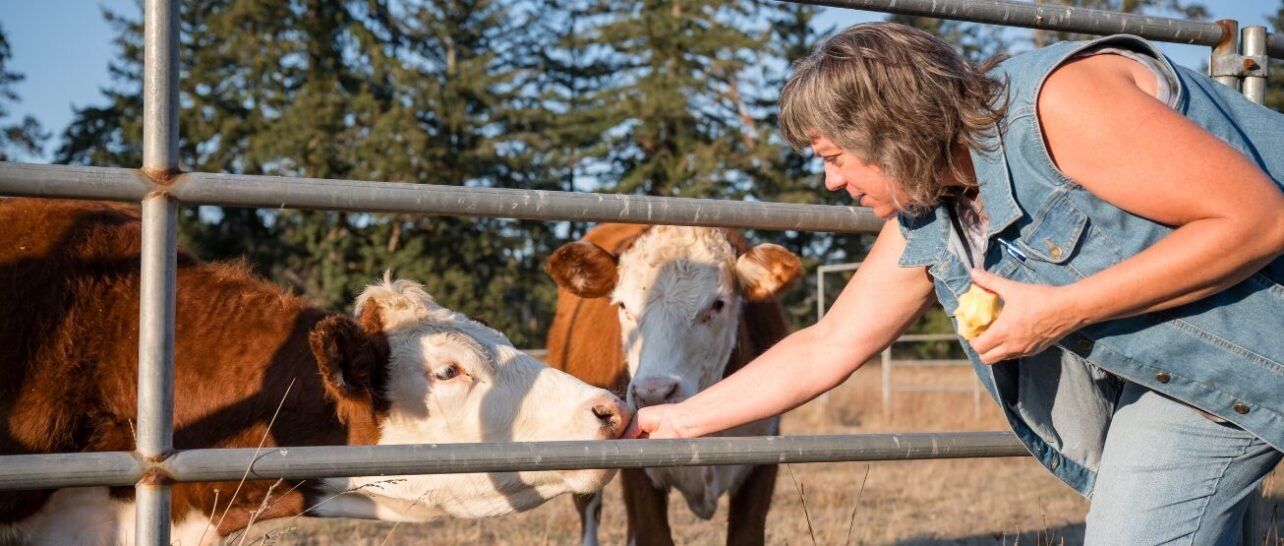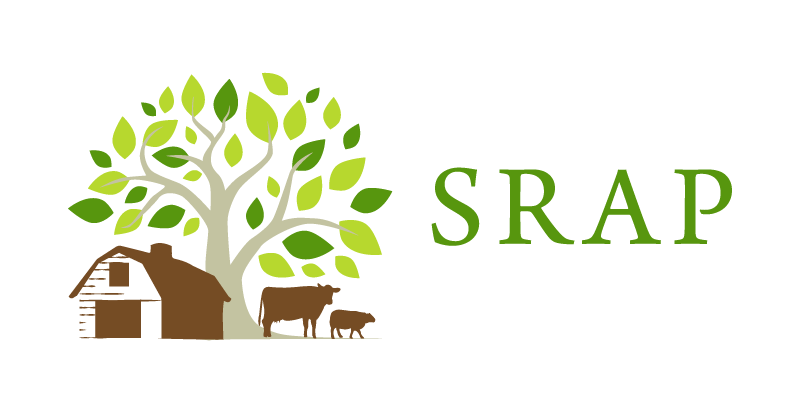Share
Leadership Letter
Welcome to SRAP’s 2024 Annual Report. As we reflect on this past year, we remain grounded in the same core belief that has always driven our work: communities should have the power and resources to protect their health, environment, and quality of life from corporate control and industrial pollution.
The challenges facing rural communities, independent farmers, and impacted populations continue to evolve, and so have we. In 2024, SRAP deepened our commitment to supporting those on the frontlines of factory farms while building a stronger, more inclusive movement toward a food system rooted in justice and sustainability.
Over the last year, we’ve expanded our reach and strengthened our programs:
- Through our Community Support Program, we responded to an increasing number of help requests, improved internal systems to serve impacted communities, and hosted in-person community gatherings and trainings.
- Our Food & Farm Network has grown into a dynamic hub of advocacy, with new grassroots leaders emerging from our first Advocacy Course cohort, and state coalitions mobilizing around policy solutions that prioritize community needs.
- The Water Rangers Program continues to be a vital tool for protecting water quality as we expand our work with Tribal Nations, while continuing to monitor and push back against CAFO pollution with the help of local volunteer water monitors.
- Our Contract Grower Transition Program gained attention as a critical support model for farmers seeking to exit the industrial system, as our team provided legal resources, connections, and pathways for growers looking to transition away from the industrial agriculture system.
Internally, we laid the groundwork for long-term transformation by developing a new Impacted Community Advisory Board, launching community dinners to better incorporate the ideas and needs of those most affected, and strengthening partnerships that reflect and better support the communities we serve.
SRAP’s work is not easy, and it is not quick. But it is driven by collaboration and a shared vision of a more equitable food future. As always, we are grateful for the trust, generosity, and partnership of our supporters. Together, we are building something powerful—and we’re just getting started.
In gratitude,

Mission, Vision, Values, Outcomes
MISSION
Through education, advocacy, and organizing, SRAP collaborates with communities to protect public health, environmental quality, and local economies from the damaging impacts of industrial livestock production and to advocate for a socially responsible food future.
VISION
Supported by SRAP, communities across the U.S. are able to replace industrial livestock production with ecologically sound, socially equitable, and economically viable animal agriculture.
VALUES
Socially responsible agriculture can rebuild critically needed topsoil, reduce water and air pollution, strengthen rural economies, and support human health and food security, all while providing climate resiliency. With socially responsible agriculture, we all thrive.
On the other hand, with industrial livestock production comes injustice … to the environment, to people, to animals, and to the planet. Today’s consolidated food and agriculture system drives independent family farmers off the land, abuses food system workers, perpetuates social and racial injustices, pollutes our air and water, exacerbates climate change, compromises animal welfare, extracts wealth from rural communities, and damages public health. In short, it harms every aspect of life.
SRAP provides free assistance to communities threatened by industrial livestock production facilities. Our commitment to diversity, equity, and inclusion is reflected in the communities we serve, many of which face social, economic, and racial injustices. We value individuality and lean on unique and varied perspectives to collaborate with communities to stand up to the abuses of factory farms while advocating for a socially responsible food future.
OUTCOMES
The outcomes by which we measure the success of all our programs are threefold:
- Fenceline communities are successful in preventing industrial livestock production from expanding, while holding existing facilities accountable;
- Communities, movement leaders, allied organizations, and SRAP have the tools, research, and data necessary to amplify unified campaigns and narratives;
- Impacted communities are connected with state and national coalitions to collectively advocate for a socially responsible animal agriculture system.
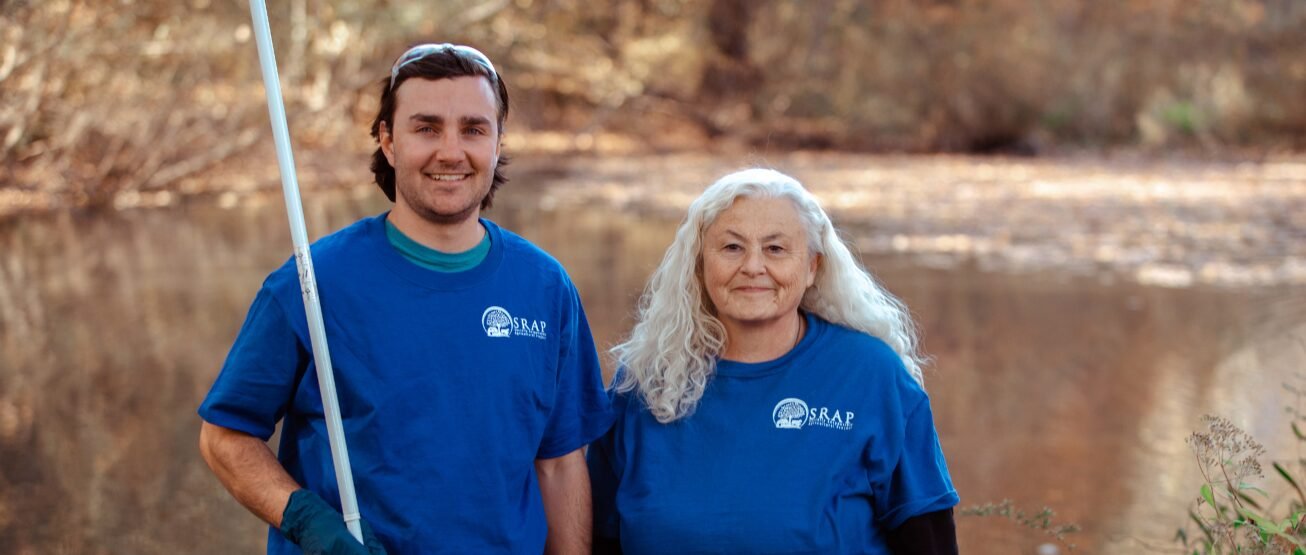
Organizational Highlights
For more than 20 years, SRAP has served as a mobilizing force to assist communities in protecting themselves from the damages caused by industrial livestock operations and advocating for a food system built on regenerative practices, justice, democracy, and resilience. Our team includes technical experts, independent family farmers, and rural residents who have faced the direct threats of factory farms in their communities.
SRAP is the only organization that works throughout the U.S. to provide direct support to fenceline communities facing the devastating environmental, human health, and socioeconomic impacts of industrial livestock operations. The organization has a unique vantage point in that it engages impacted communities at the local level but does so nationwide. This provides not only direct insight into the realities of what is happening on the ground in rural communities, but also how these conditions fit into nationwide patterns, needs, and overarching public policy initiatives.
In 2024, SRAP continued to build upon our organizational goals: increasing engagement and impact through the Community Support Program, Water Rangers Program, and Contract Grower Transition Program; building a more identifiable national presence and strengthening movement building through the Food & Farm Network, and increasing and diversifying our funding. We achieved these goals and more.
Programmatic Accomplishments
COMMUNITY SUPPORT PROGRAM
In 2024, our Community Support program played a pivotal role in assisting communities confronting the harms of factory farms. Throughout the year, we handled approximately 55 active cases across 24 states, delivering tailored guidance, technical expertise, and strategic organizing support to rural residents and allied organizations. These efforts contributed to 18 community wins in nine states, including three legislative wins in Wisconsin, Missouri, and Michigan.
We launched an updated GIS portal for widespread use by ally organizations and communities facing incoming or expanding operations, and we continue to bring on new staff and consultants with organizing experience, as well as technical and policy expertise. We continued to pursue diversity, equity, and inclusion (DEI) training, and several on our team received outside organizing, media, and management training to better serve diverse communities and teams.

WATER RANGERS PROGRAM
Through our Water Rangers program, SRAP continues to support communities with the tools and training needed to monitor and respond to water pollution linked to factory farms. In 2024, the program delivered 22 training sessions to 114 participants across nine states, including both virtual and in-person opportunities. These sessions provided hands-on skills in water sampling, analysis, and reporting while deepening understanding of local pollution sources. A key focus this year was culturally relevant outreach to Tribal Nations in Michigan and Wisconsin. Working alongside Native consulting firm, Good Sky Guidance, we developed a culturally specific engagement strategy, launched a new web page, and began building new partnerships with Native-led organizations. We also expanded academic collaborations, including a research partnership with UCLA that investigated antibiotic-resistant bacteria near CAFOs and contributed to peer-reviewed publications and conference presentations.
A fall survey of program participants revealed strong results: 85% reported engaging with regulatory agencies; 43 pollution complaints and 43 public comments were submitted; 27% achieved a victory related to their advocacy; 65% are actively monitoring water in their communities; and 74% expressed interest in continued training. These outcomes reflect the program’s success in driving community-led
action, supporting long-term engagement, and fostering environmental accountability across rural regions.
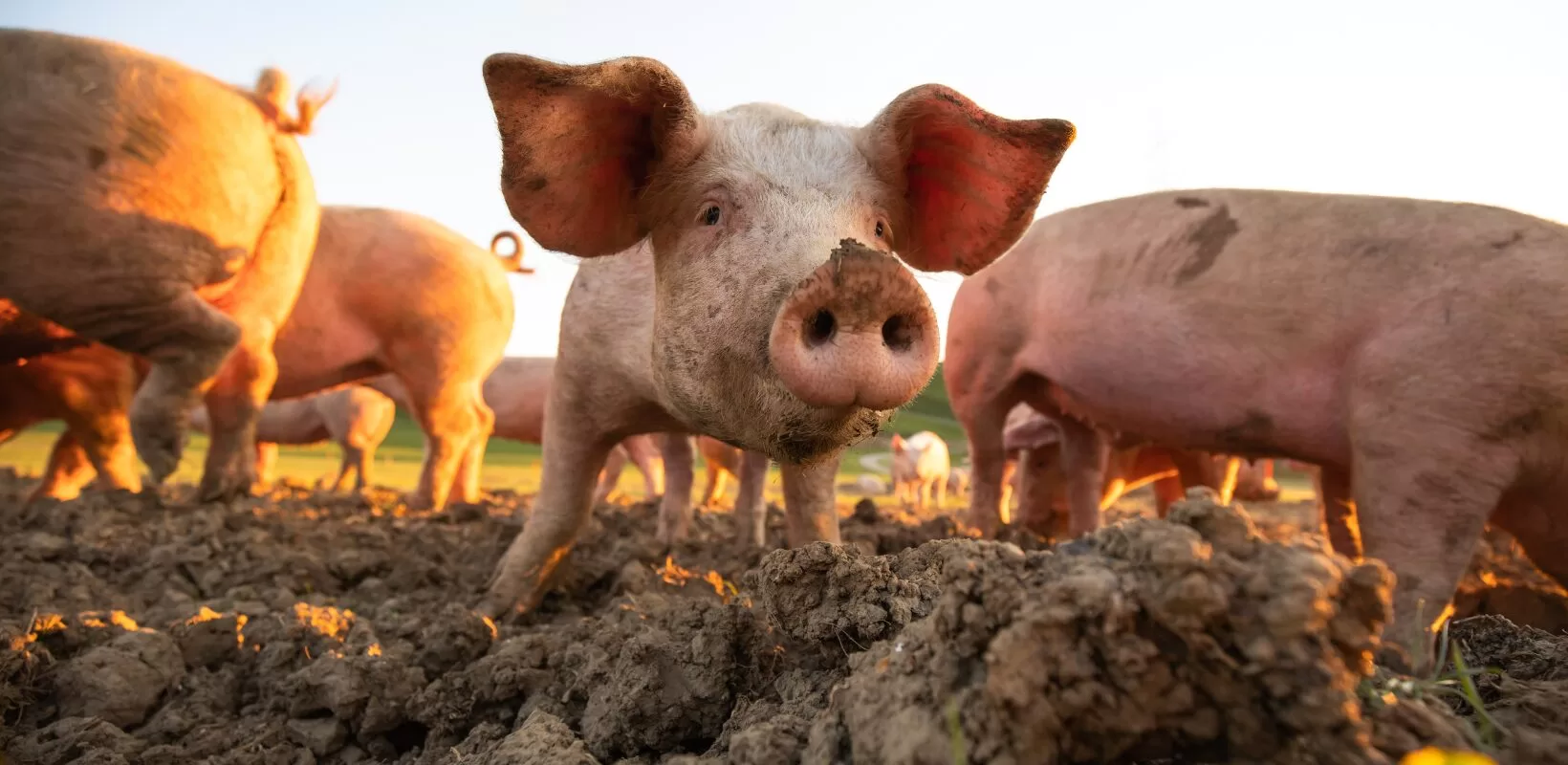
CONTRACT GROWER TRANSITION PROGRAM
The Contract Grower Transition Program supports current and former contract livestock growers in transitioning away from the industrial agriculture model. In 2024, the program responded to major disruptions in the poultry industry, including the abrupt closure of Cook’s Venture in Arkansas and widespread contract cancellations by Tyson in Georgia. The program supported 15 impacted growers in Arkansas and 28 predominantly Vietnamese American growers in Georgia by facilitating meetings with USDA representatives, attorneys, and advocacy organizations. These efforts provided immediate support and contributed to a formal federal investigation into potential discriminatory practices. The program also explored sustainable farming alternatives, connecting growers with Freight Farms and
other models for hydroponic and aquaponic production. The team co-hosted a USDA rulemaking comment workshop with over 40 participants and worked closely with the Food & Farm Network to align policy efforts across programs.
Guided by regular input from the seven-member Contract Grower Advisory Board, the program continued to expand, providing tailored support to 57 growers across Georgia, Missouri, Arkansas, Mississippi, South Carolina, and Maryland. The program not only delivered crisis response and one-on-one assistance but also helped growers explore long-term pathways out of industrial systems. By blending direct support, resources, and strategic advocacy, the program continues to position growers as key voices in the movement toward a more just and resilient food system.
FOOD & FARM NETWORK
The Food & Farm Network engages farmers and rural residents to advocate for regenerative food systems, social justice, climate initiatives, public health, and animal welfare. The program focuses on three areas: leadership development, coalition/movement building, and policy advocacy.
In 2024, FFN launched the first Advocacy Course, training seven emerging leaders from six states in storytelling, media, and policy engagement. The team also established a six-member Impacted Community Advisory Board to guide program development and ensure outreach efforts remain rooted in lived experience.
FFN continued to support state-based coalitions and organizing efforts in Wisconsin, Nebraska, Missouri, Indiana, and North Carolina, helping communities respond to local CAFO threats, shape environmental policy, and build grassroots power. The team hosted quarterly virtual networking events, led targeted advocacy campaigns, and supported key national efforts such as endorsing the Local Procurement Act and pushing for an equitable 2024 Farm Bill. FFN also played a pivotal role in defeating anti-local control legislation in Wisconsin and advancing stronger environmental protections in Missouri.
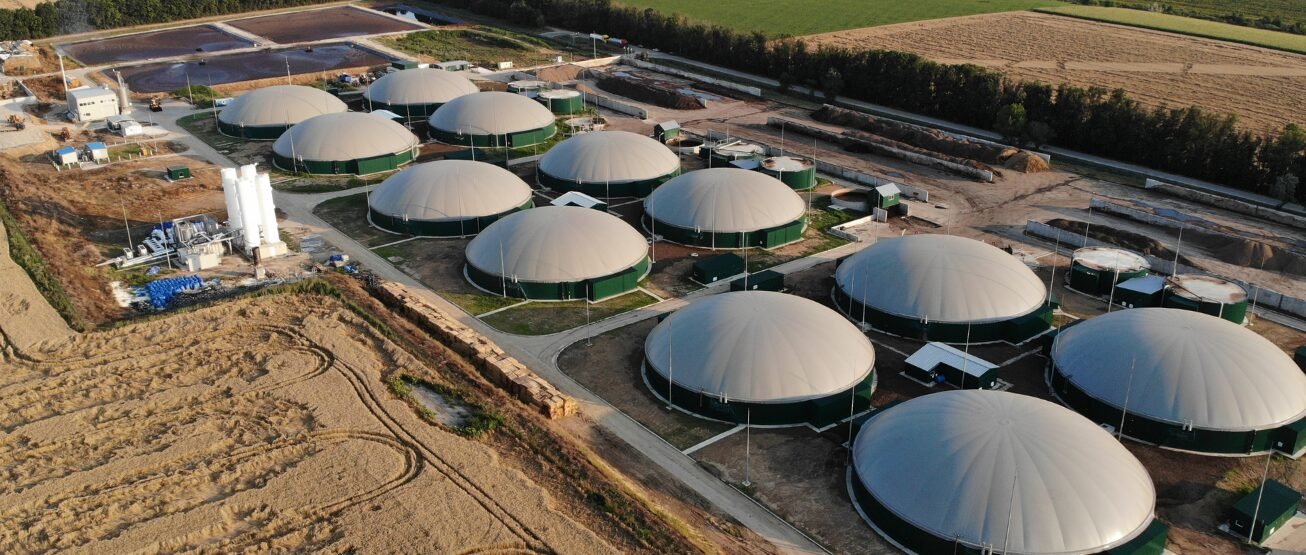
FACTORY FARM GAS ADVOCACY
In 2024, SRAP expanded its work to confront the growing threat of factory farm gas digesters—facilities often framed as climate solutions but that, in reality, promote CAFO expansion and environmental injustice. With the ground-breaking report, Biogas or Bull**? The Deceptive Promise of Manure Biogas as
a Methane Solution, we worked alongside our partners at Friends of the Earth (FOE) to expose the harms of this false solution and advocate for true climate strategies rooted in equity and community resilience.
Our collaboration with FOE and the Leadership Council resulted in two additional case studies examining the impacts of digesters in Wisconsin and California. We shared findings through webinars, policy briefings, and national media outreach, including a tour for the Washington Post. In June, SRAP and partners traveled to Washington, D.C., to meet with EPA, USDA, and Congressional staff, elevating community voices and calling for stronger oversight. Our work reached tens of thousands online and helped shape state and federal conversations about the risks of biogas. This advocacy has informed permit fights, supported frontline communities, and helped shift the narrative toward real, just climate solutions.
Research & Resources
In 2024, SRAP continued to provide research and education to community groups and partner organizations through Freedom of Information Act (FOIA) trainings, webinars, social media events, and various research projects. Other research and resource efforts included:
GIS PORTAL 2.0
In August, SRAP launched an overhauled version of our GIS Portal, a tool that incorporates data from disparate government maps and databases to serve as a one-stop, interactive mapping resource for communities facing industrial livestock operations. The latest iteration of the Portal features an updated proximity analysis tool, an improved user interface, and more efficient geodata and map layer update capabilities.
WISCONSIN CAFO WASTE APPLICATION MAP
We continued to refine a map depicting the fields that Wisconsin CAFOs use for waste application, as designated in nutrient management plans. Our preliminary research indicates that several fields are being used for waste application by multiple CAFOs, which is a violation of state regulations.
NCEJN FACTSHEETS
As part of SRAP’s efforts to support a North Carolina Roundtable coalition, we designed a series of factsheets with content developed by the North Carolina Environmental Justice Network. The factsheets are intended to be used for public education in the coalition’s efforts to improve the state’s CAFO general National Pollutant Discharge Elimination System (NPDES) permit.
SRAP OPPORTUNITY MAP
SRAP created a map of all past and current SRAP community help requests, along with national data layers, including livestock density, impaired waterways, and EPA environmental justice demographics. We plan to use this tool to inform our strategy for future outreach and program expansion.
ADDITIONAL MAPS
SRAP provided GIS mapping support for several advocacy campaigns and community efforts in 2024. These maps were developed to visualize environmental and equity concerns associated with industrial agriculture and to bolster grassroots advocacy efforts.
By the Numbers
55—New Community Support requests for assistance
275—Virtual and in-person community meetings
98—Public comment period engagements
71—Community partnerships
24—Total states worked in during 2024
68—Workshops and trainings
61 —Media features
200,000—People reached through social media
Board of Directors and Staff
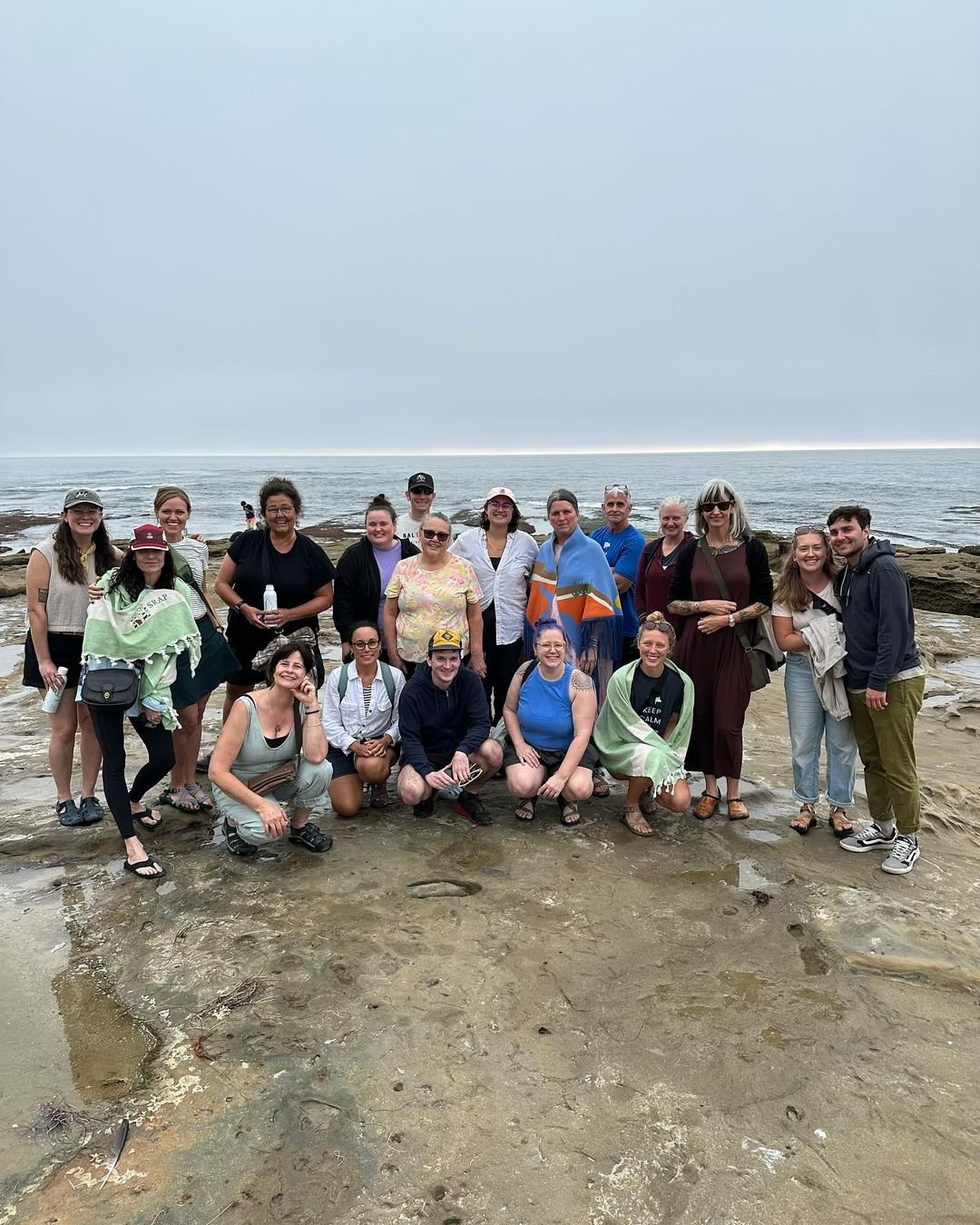
BOARD OF DIRECTORS
- Mike Callicrate
- Jessica Culpepper, Chair
- Austin Frerick, Treasurer
- Robert Lawrence, MD, Secretary
- Monica Richardson Brooks
- Don Stull
STAFF
- Reva Baylets, Operations Associate
- Ashlen Busick, Food & Farm Network Director
- Rachel Casteel, Regional Representative
- Chris Culbreth, Community Support Team Associate
- Susie Crutchfield, Regional Representative, Contract Grower Transition
- Michael Diaz, Regional Representative, Contract Grower Transition
- Cole Dickerson, Water Rangers Program Manager
- Mary Dougherty, Senior Regional Representative
- Sherri Dugger, Executive Director
- Maegan Eichinger, Digital Media Specialist
- Tina Empey, Community Support Program Director
- Katie Engelman, Operations and Human Resources Director
- Julia Groenfeldt, Development Manager
- Lynn Henning, Water Rangers Program Director
- Eli Holmes, Senior Counsel
- Chris Hunt, Deputy Director
- Donald Hutchinson, GIS, Research & Resources Specialist
- Lia Kahan, Impacted Communities Coordinator
- Teresa Mitchell Clausen, Regional Representative
- Mercedes Taylor-Puckett, Finance Manager
- Craig Watts, Contract Grower Transition Program Director
- Charline Whyte, Staff Attorney
- Julie Wilson, Communications Manager
Professional & Team Development

SRAP expanded our team, adding three new staff members to further enhance our capacity to support communities and advance our mission. Throughout the year, SRAP continued to prioritize professional
growth and cultural competency, including launching a new phase of DEI training to further integrate DEI principles throughout our work. In September, SRAP staff participated in a Native Nations Cultural Competency Training, facilitated by Good Sky Guidance, providing critical insights into the historical and ongoing injustices faced by Native Nations, as well as traditional practices and cultural protocols. By deepening our understanding of these issues, SRAP is committed to fostering respectful, authentic collaborations with Native Nations and ensuring our programs remain culturally responsive and community-centered.
Financials
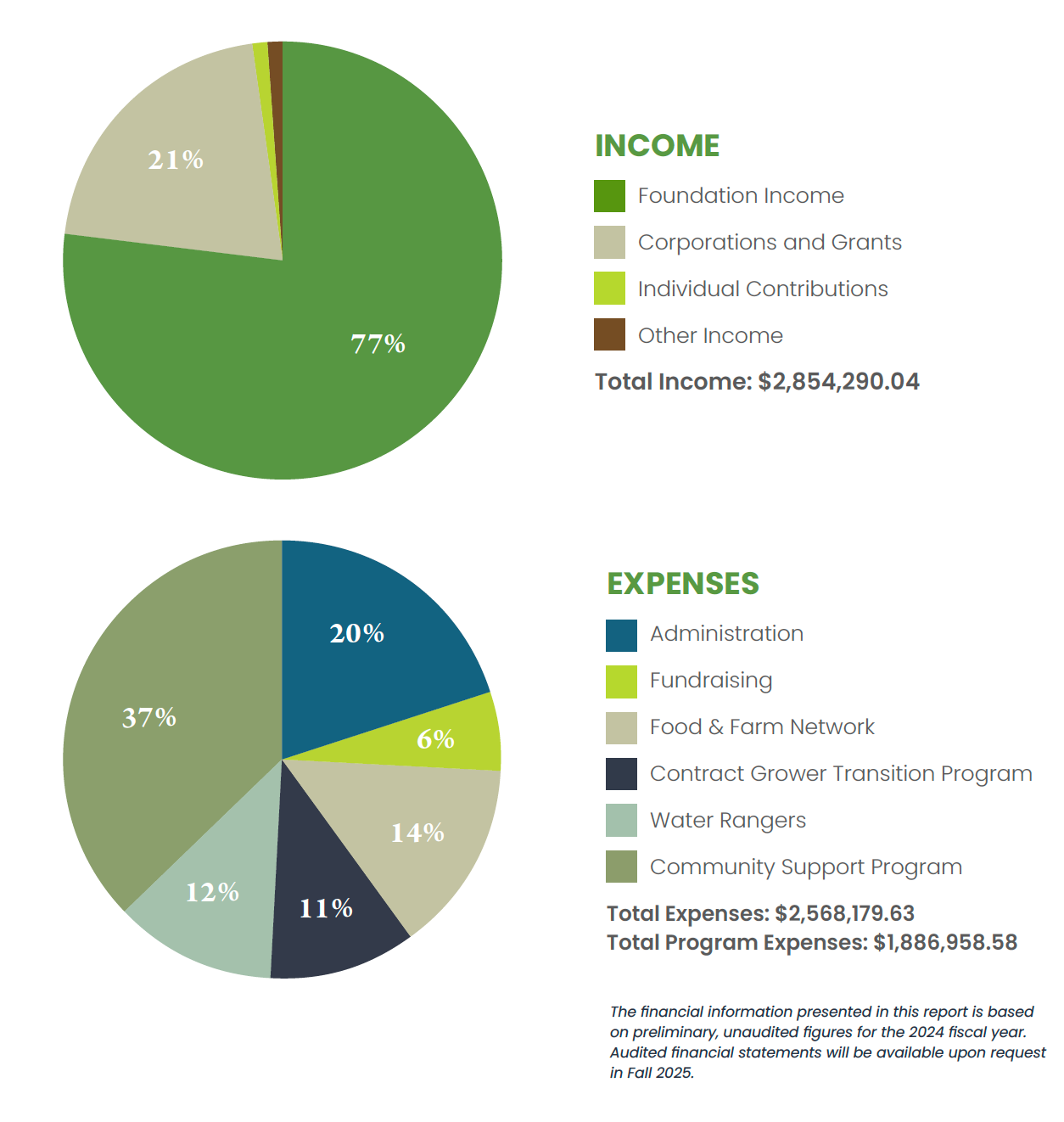
For more than 20 years, SRAP has served as a mobilizing force to help communities protect themselves from the damages caused by industrial livestock operations and to advocate for a food system built on regenerative practices, justice, democracy, and resilience.

